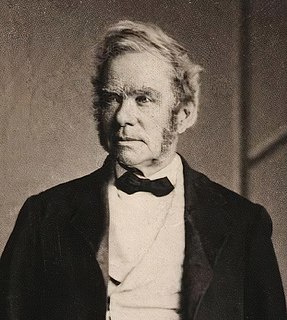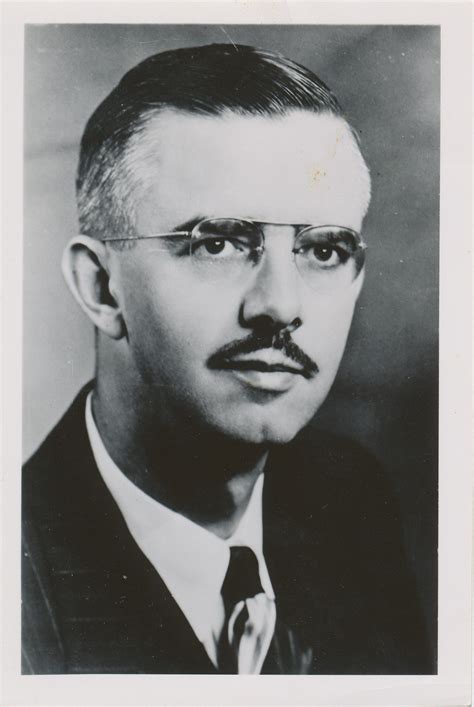A Quote by Josiah Warren
The necessity of every one paying in his own labor for what he consumes, affords the only legitimate and effectual check to excessive luxury, which has so often ruined individuals, states and empires; and which has now brought almost universal bankruptcy upon us.
Related Quotes
Jesus is now the Lord; He is enthroned at the right hand of God; He is reigning in His kingdom. But this is a Lordship and a kingly reign which is known only to believers. It must be confessed by faith. His Second Coming will mean nothing less than the Lordship which is His now will be visible to all the world. When we pray, 'Thy kingdom come,' this is what we are praying for: the effectual and universal rule of Christ in all the world, not only over believers.
The luxury of today is the necessity of tomorrow. Every advance first comes into being as the luxury of a few rich people, only to become, after a time, an indispensable necessity taken for granted by everyone. Luxury consumption provides industry with the stimulus to discover and introduce new, things. It is one of the dynamic factors in our economy. To it we owe the progressive innovations by which the standard of living of all strata of the population has been gradually raised.
Ethics has not only to do with mankind but with the animal creation as well. This is witnessed in the purpose of St. Francis of Assisi. Thus we shall arrive that ethics is reverence for all life. This is the ethic of love widened universally. It is the ethic of Jesus now recognized as a necessity of thought...Only a universal ethic which embraces every living creature can put us in touch with the universe and the will which is there manifest.
Among those whose reputation is exhausted in a short time by its own luxuriance are the writers who take advantage of present incidents or characters which strongly interest the passions, and engage universal attention. It is not difficult to obtain readers, when we discuss a question which every one is desirous to understand, which is debated in every assembly, and has divided the nation into parties; or when we display the faults or virtues of him whose public conduct has made almost every man his enemy or his friend.
The necessity for struggle is one of the clever devices through which nature forces individuals to expand, develop, progress, and become strong through resistance. . .We are forced to recognize that this great universal necessity for struggle must have a definite and useful purpose. That purpose is to force the individual to sharpen his wits, arouse his enthusiasm, build up his spirit of faith, gain definiteness of purpose, develop his power of will, and inspire his faculty of imagination to give him new uses for old ideas and concepts. . .
I am of opinion that national greatness is more for the advantage of private citizens, than any individual well-being coupled with public humiliation. A man may be personally ever so well off, and yet if his country be ruined he must be ruined with it; whereas a flourishing commonwealth always affords chances of salvation to unfortunate individuals.
Though freedom and wealth are both good things which most of us desire and though we often need both to obtain what we wish, they still remain different. Whether or not I am my own master and can follow my own choice and whether the possibilities from which I must choose are many or few are two entirely different questions. The courtier living in the lap of luxury but at the beck and call of his prince may be much less free than a poor peasant or artisan, less able to live his own life and to choose his own opportunities for usefulness.
Pathology has made us acquainted with a great number of states in which the boundary lines between the ego and the external world become uncertain or in which they are actually drawn incorrectly. There are cases in which parts of a person's own body, even portions of his own mental life - his perceptions, thoughts and feelings -, appear alien to him and as not belonging to his ego; there are other cases in which he ascribes to the external world things that clearly originate in his own ego and that ought to be acknowledged by it.
It would be well for those interested to reflect whether there now exists, or ever has existed, a wealthy and civilized community in which one portion did not live on the labor of another; and whether the form in which slavery exists in the South is not but one modification of this universal condition... Let those who are interested remember that labor is the only source of wealth, and how small a portion of it, in all old and civilized countries, even the best governed, is left to those by whose labor wealth is created.
Every individual man has a bias which he must obey, and...it is only as he feels and obeys this that he rightly develops and attains his legitimate power in the world. It is his magnetic needle, which points always in one direction to his proper path.... He is never happy nor strong until he finds it, keeps it.




































